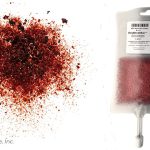UPMC resident physician Dr. Shinjini Kundu has been named one of MIT Technology Review’s 2018 35 Innovators Under 35.
For over a decade, the MIT Technology Review has recognized exceptionally talented technologists whose work has the greatest potential to transform the world. The awards span a wide range of fields, including biotechnology, materials, computer hardware, energy, transportation, communications and the Internet.
“Artificial intelligence will transform medicine as we know it,” Kundu said while explaining her research in developing a new artificial intelligence technology for medical diagnostics based on imaging.
Medical imaging technology has advanced rapidly and the images produced have become increasingly detailed, surpassing the ability for human recognition. There is far more information buried in these images that is visually apparent, and the technique she developed, called 3D Transport-Based Morphometry (TBM), uses artificial intelligence to find patterns undetectable to the naked eye that signal future disease.
In testing her method, she searched MRI scans of knee cartilage, trying to determine whether there were patterns that could predict the onset of osteoarthritis (OA), which is a form of arthritis that affects millions of people worldwide. TBM, she found, enabled the detection of OA in seemingly healthy individuals. The technique detected patterns that pointed to OA approximately three years before the patients became symptomatic, a huge leap from currently available diagnostic methods.
She is now studying whether aerobic exercise may cause structural changes in the same areas of the brain that are affected by aging, which could then be used to determine whether exercise could potentially slow or reverse the effects of aging.
“Doing what I’m passionate about is its own reward,” said Kundu “I’m excited to see what’s next for this technology in fully unlocking the secrets of the human body.”
To get more stories like this directly to your inbox, subscribe to our weekly Inside Life Changing Medicine newsletter at bit.ly/upmc_newsletter.








